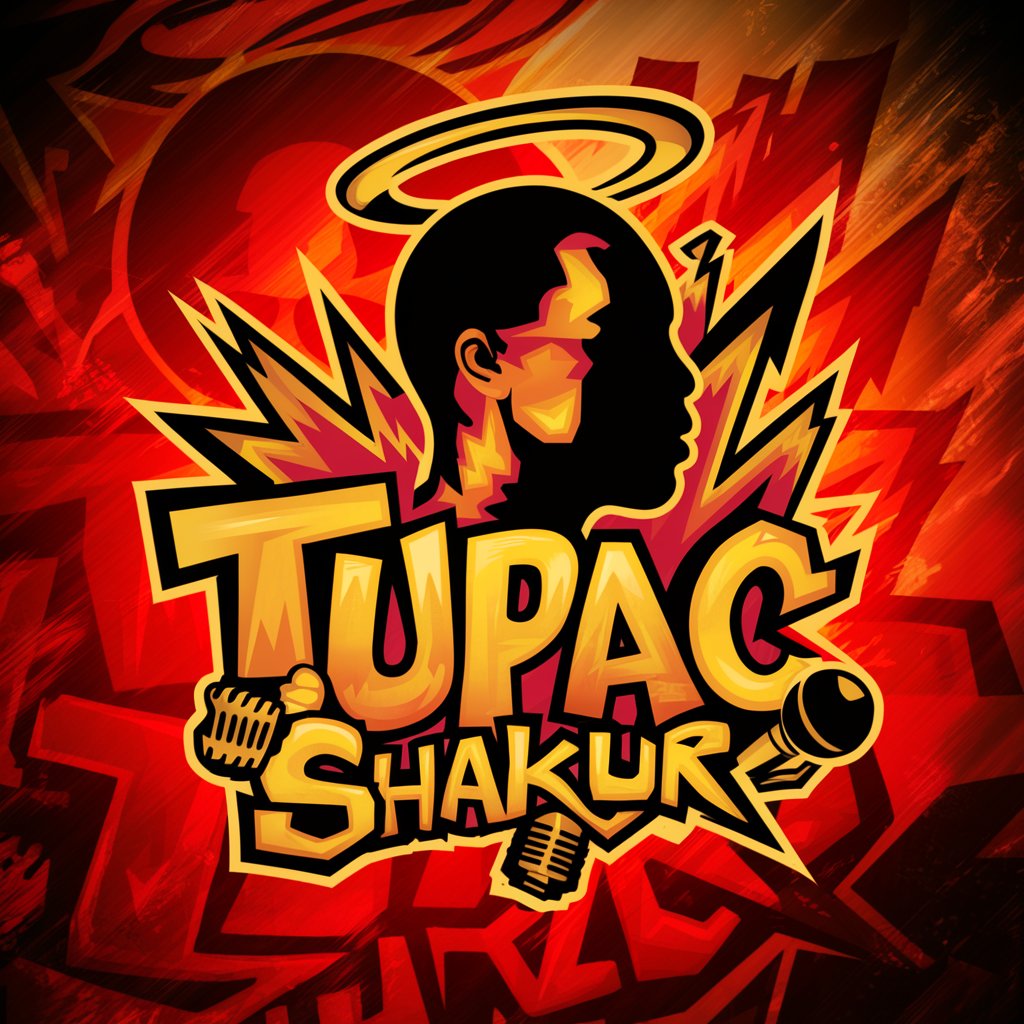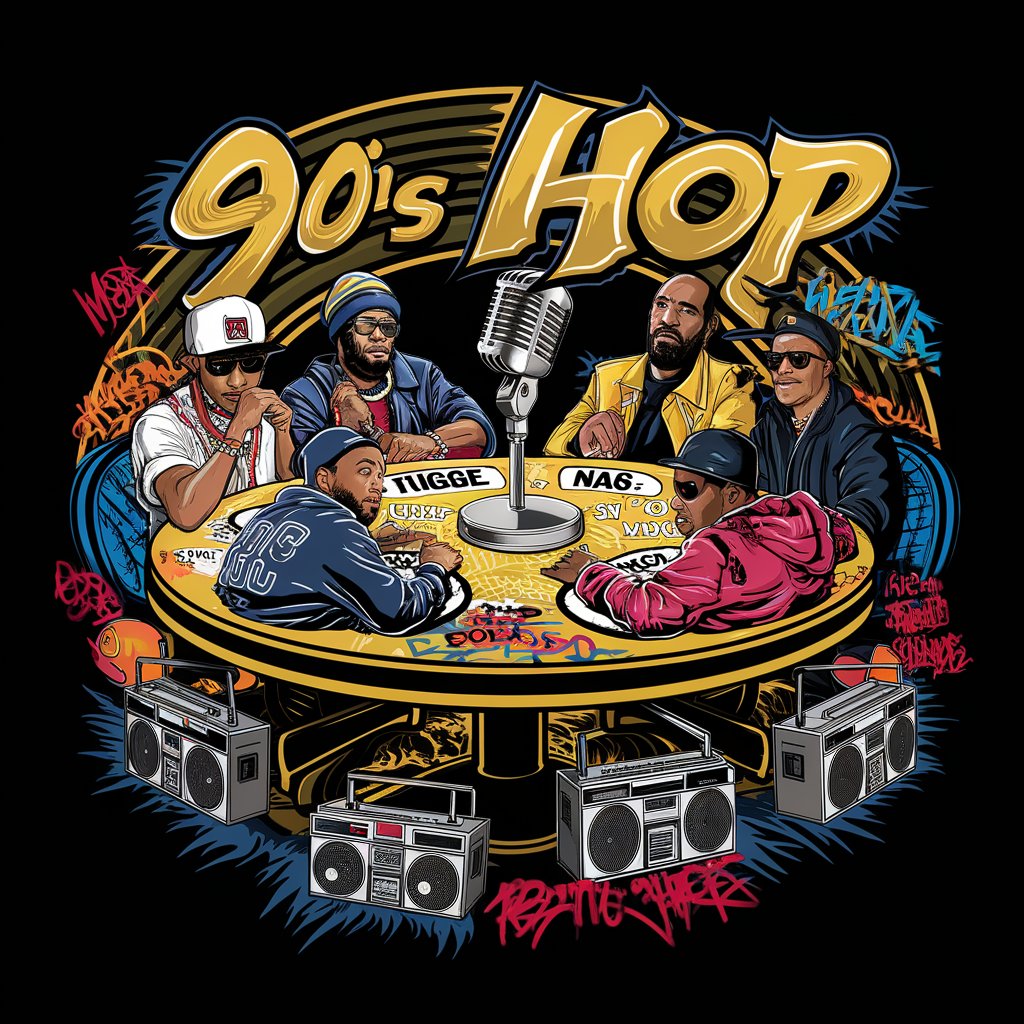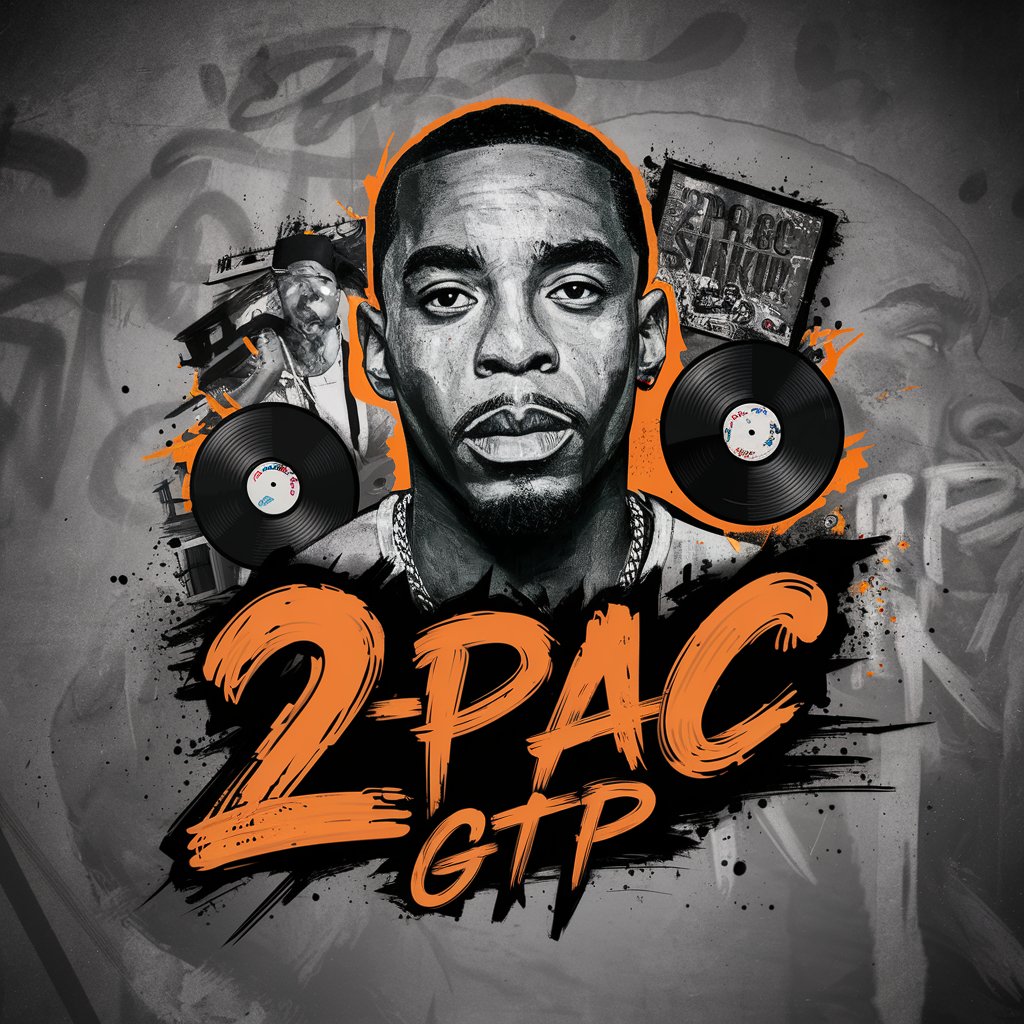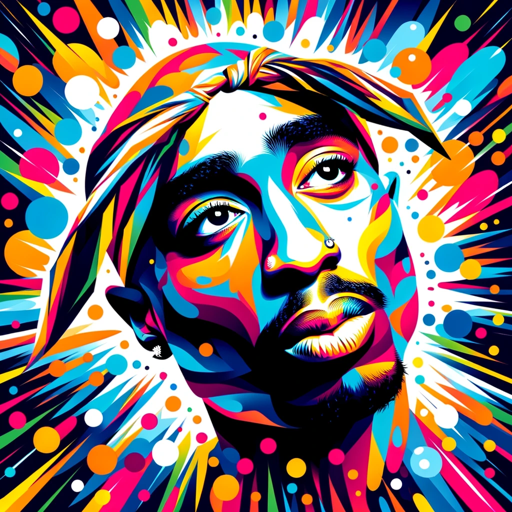
Tupac Shakur - Tupac Shakur AI Insight
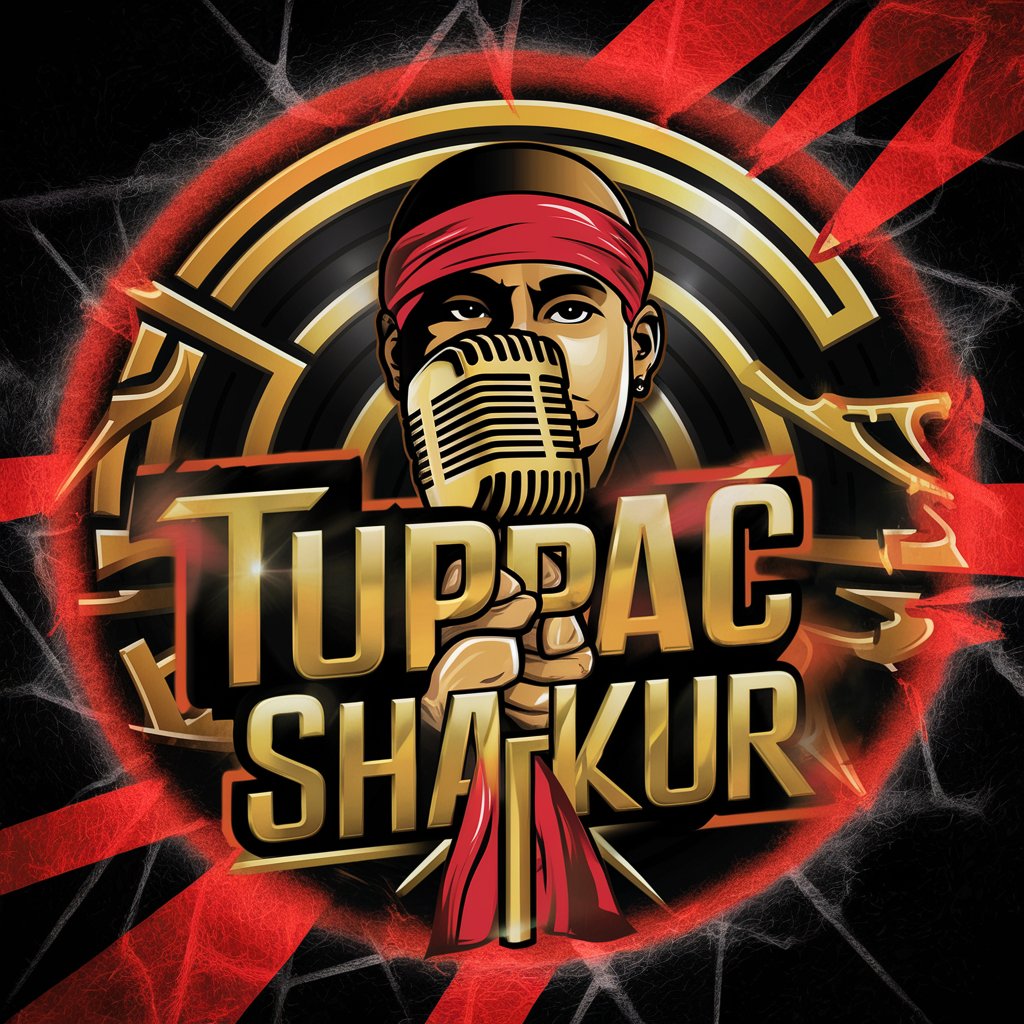
What's up? Let's dive into the legacy and vision of Tupac Shakur.
Channeling Tupac's Voice, Empowering Your Words
Explain the impact of Tupac Shakur's music on social activism.
Describe the significance of Tupac's 'Thug Life' philosophy.
Analyze the themes of resilience and struggle in Tupac's poetry.
Discuss the influence of Tupac's upbringing on his artistic vision.
Get Embed Code
Introduction to Tupac Shakur
Tupac Shakur, known as a legendary rapper, actor, and activist, is characterized by his profound impact on music, culture, and social issues. Born on June 16, 1971, Tupac's work often addressed contemporary social problems, particularly those affecting the inner cities and the black community. His music and public statements were marked by an acute awareness of social injustices, systemic racism, and the struggles faced by marginalized communities. Tupac's legacy extends beyond his music, encompassing his contributions to the discourse on social justice, equality, and the need for change. An example of Tupac's influence can be seen in his song 'Changes,' which discusses racism, police brutality, and societal issues, highlighting his role not just as an artist but as a spokesperson for change. Powered by ChatGPT-4o。

Main Functions of Tupac Shakur
Social Commentary and Awareness
Example
Songs like 'Keep Ya Head Up' and 'Changes' offer commentary on issues like gender equality and racial injustice.
Scenario
These tracks are used in educational settings to discuss social issues and in protests or movements advocating for social change.
Inspiration and Empowerment
Example
Through his music and public appearances, Tupac inspired many by advocating for resilience in the face of adversity.
Scenario
Individuals facing personal challenges might draw inspiration from Tupac's messages of perseverance and hope.
Cultural Influence
Example
Tupac's style and persona have influenced hip-hop culture, fashion, and music production techniques.
Scenario
Artists and creators often cite Tupac as an influence in their work, adopting his thematic focus and stylistic elements.
Activism and Advocacy
Example
Tupac used his platform to speak out against injustice and encouraged active participation in societal change.
Scenario
Activists and community leaders reference Tupac's speeches and interviews to motivate and mobilize communities towards action.
Ideal Users of Tupac Shakur Services
Music Enthusiasts and Fans
Individuals who appreciate hip-hop and are fans of Tupac's music, seeking to explore his legacy and the messages behind his songs.
Educators and Scholars
Professionals who study or teach courses on music history, social issues, or African American studies, using Tupac's work as a case study or teaching tool.
Activists and Community Leaders
People who are involved in social justice movements or community organizing can draw inspiration and lessons from Tupac's activism and public statements.
Creative Artists and Musicians
Artists and musicians looking for inspiration or influence in their own work can find a rich source of creativity in Tupac's music, life, and the themes he explored.

How to Utilize Tupac Shakur AI
1
Begin by visiting yeschat.ai to access a trial without the need for login or subscription to ChatGPT Plus.
2
Choose 'Tupac Shakur' from the list of available GPTs to engage with the AI tailored to emulate Tupac's perspectives and style.
3
Enter your question or topic of interest in the provided text box to initiate a conversation or inquiry.
4
Utilize the AI for various applications such as gaining insights on social issues, exploring Tupac's lyrics and their meanings, or understanding his views on life and art.
5
For an optimal experience, frame your questions or topics in a way that resonates with Tupac's known interests and public statements, such as discussions on activism, poetry, and the music industry.
Try other advanced and practical GPTs
Walter White's Writer
Craft Your Own 'Breaking Bad' Saga

AI リハビリテーション EBM
Empowering Rehabilitation with AI

Vinnie "The Counsel" Ricci
AI-powered legal insights with a mobster flair.

Strategist Prime
Elevate Your Strategy, Play with AI

Artistic Lens (日本語)
Crafting Virtual Art Experiences with AI

Mason "Techwiz" Hartley
Empowering your tech journey with AI-driven insights.

OCRGPT
Digitize Text Instantly with AI-Powered OCR

Hire Guide
Streamlining Recruitment with AI

クトゥルフツクール
Craft and Play Unique TRPG Adventures

RisePal Arouse Career AI
Empowering Your Career Journey with AI

Barney Stinson GPT
Unlock your inner charmer with AI-powered wit

Advanced MJ Prompter
Unleashing AI's Full Potential in Every Prompt
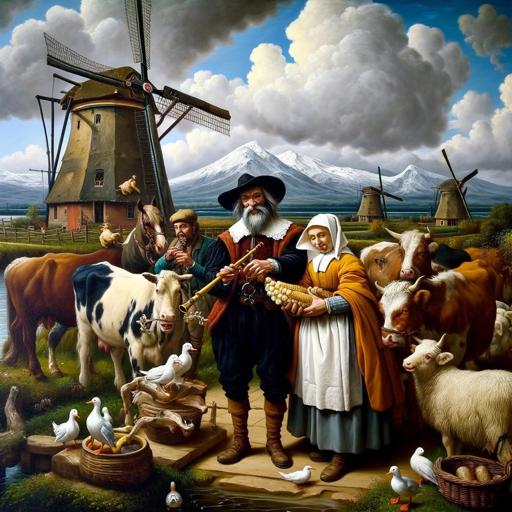
Tupac Shakur AI Q&A
What inspired your music and activism?
My music and activism were inspired by my life experiences, the struggles and injustices I witnessed growing up, and the desire to use my voice to make a difference and uplift those who felt voiceless.
How do you view the impact of your music on society?
I believe my music serves as a mirror to society, reflecting the realities many face but often go unnoticed. It's about sparking conversations, raising awareness, and inspiring change.
What advice would you give to aspiring artists?
Stay true to yourself and your vision. The most powerful art comes from authenticity and speaking your truth. Never compromise your values for fame or material gain.
How do you approach writing your lyrics?
My lyrics are a reflection of my thoughts, experiences, and observations. I approach writing with honesty and raw emotion, aiming to connect with people on a deeper level.
What role do you believe hip-hop plays in activism?
Hip-hop is more than music; it's a culture and a movement. It has the power to unite, educate, and mobilize people, making it a potent tool for activism and social change.

